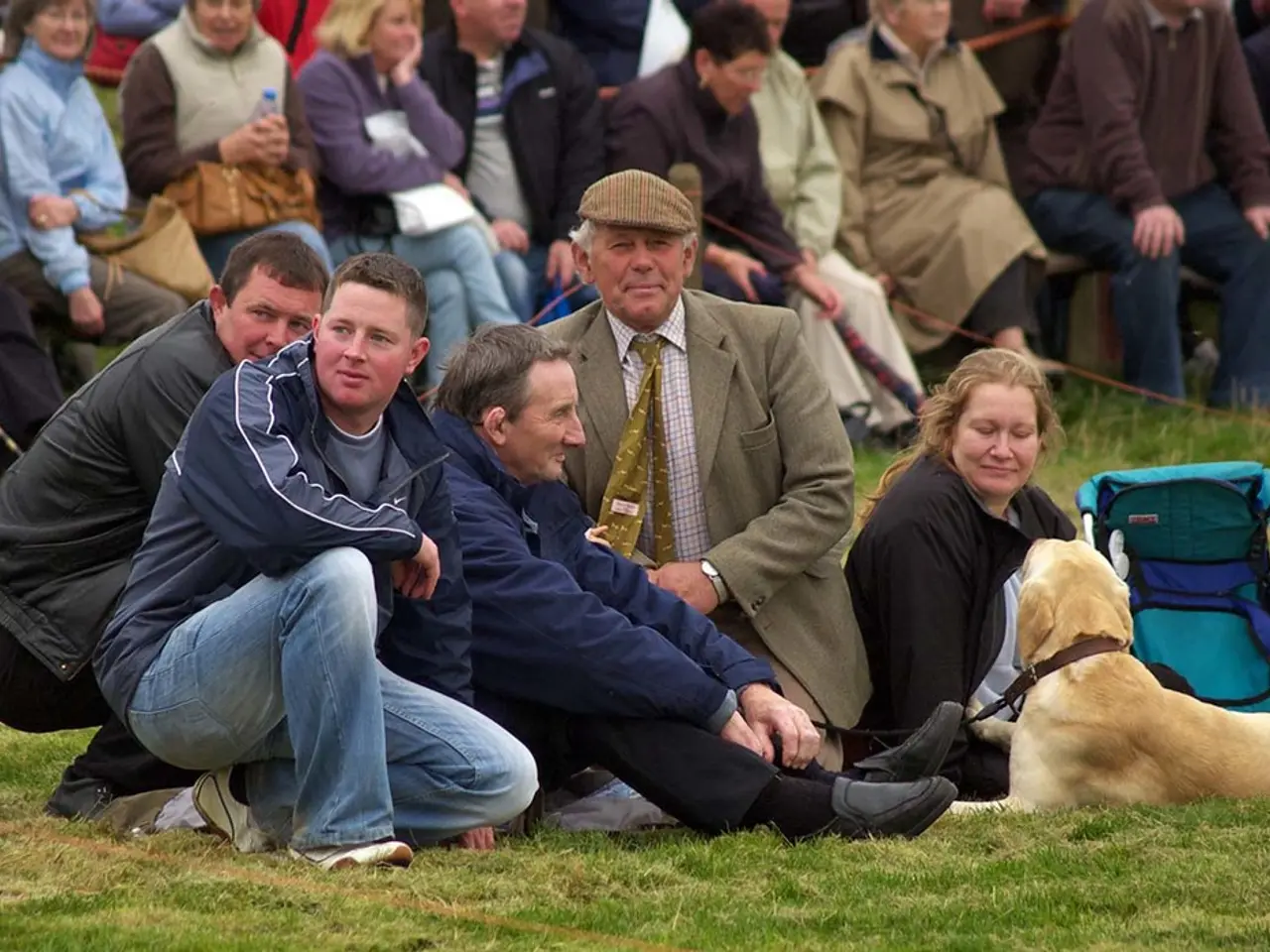Acknowledging the role of service dogs beyond just our pets: Importance of consideration while traveling with them
Service dogs are highly trained partners for individuals with disabilities, including veterans living with PTSD. These canine companions offer more than just companionship; they perform vital tasks that directly support their handlers' physical and mental health.
Organizations like Northwest Battle Buddies, K9s For Warriors, Canine Companions, K9 Partners for Patriots, and others provide expertly trained service dogs to veterans with physical, auditory, or cognitive disabilities, free of charge. These organizations have specialized training programs tailored for veterans with PTSD, TBI, or MST, focusing on personalizing training to meet each veteran's specific needs.
Service dogs for veterans with PTSD perform specific roles and tasks designed to mitigate the effects of trauma, anxiety, and stress. These tasks include interrupting panic attacks or anxiety episodes, creating a physical buffer in crowded or triggering environments, retrieving dropped items or bringing medication and phones during crises, providing deep pressure therapy, alerting and redirecting to focus when the veteran shows signs of distress, and assisting with emotional grounding and reducing isolation.
Northwest Battle Buddies, for example, pairs service dogs with veterans navigating PTSD, offering them a chance to regain a sense of freedom and independence. K9s For Warriors provides highly trained service dogs that undergo rigorous training in obedience, public access, task training specific to PTSD symptoms, and temperament assessment before being matched to veterans. Canine Companions use accredited training protocols that teach dogs between 60–80 basic and advanced cues by graduation.
K9 Partners for Patriots pairs veterans with rescued dogs, empowering veterans to take part in training their own service dog. The training focuses on customizing the service dog’s abilities to the veteran’s specific PTSD, TBI, or MST needs, building a strong veteran-dog partnership that fosters confidence and independence—at no cost to the veteran.
Helping Paws illustrates a similar model where service dogs begin with fundamental obedience and gradually move to advanced assistance tasks like opening doors, retrieving small items, and providing physical and emotional support. They utilize volunteer foster trainers and host homes to socialize and train dogs over 2 to 2.5 years before placement.
Under the Americans with Disabilities Act, service animals are allowed in public spaces such as retail stores, restaurants, and hospital waiting rooms. Staff can only ask two questions: if the animal is needed for a disability and what task it is trained to perform. They cannot request documentation or personal health information.
The public plays an essential role in creating supportive and respectful environments for service dogs and their handlers. Recognizing the distinction between a working partner and a pet can make travel smoother and more inclusive for everyone involved. Speak with the handler, not the dog, when you have a question or wish to interact. Give the team physical space, especially in crowded environments, to help both the dog and the person move more confidently.
These organizations focus on personalizing training to veterans' individual needs and emphasize public access training—that is, preparing dogs to behave appropriately in public settings to support their veterans effectively. This comprehensive approach helps veterans with PTSD regain independence, emotional regulation, and social confidence through the support of a highly trained service dog.
- A veteran partnered with a service dog from K9s For Warriors can dine with calmness at a restaurant, as the dog is thoroughly trained to manage the surroundings and provide deep pressure therapy during stressful episodes.
- As the lifestyles of some veterans with PTSD require little change, a service dog from Helping Paws can be trained to perform tasks like opening doors and retrieving items, allowing them to maintain their independence while traveling.
- While traveling, a veteran with a service dog provided by Northwest Battle Buddies may need to stop for a break, and taking a cup of tea in a hospital waiting room can be a relaxing moment for both the veteran and the service dog, helping to reduce stress and promote emotional grounding.




